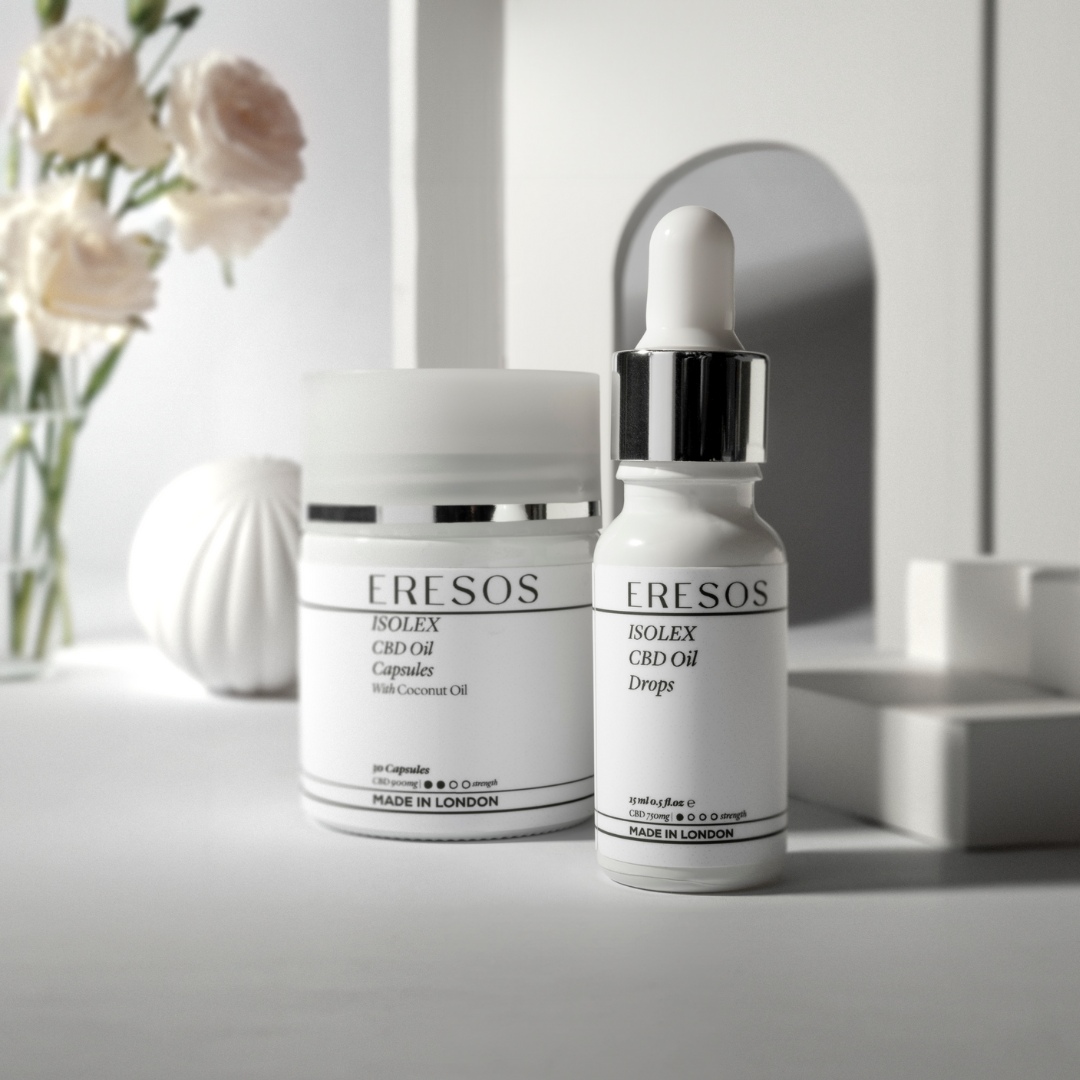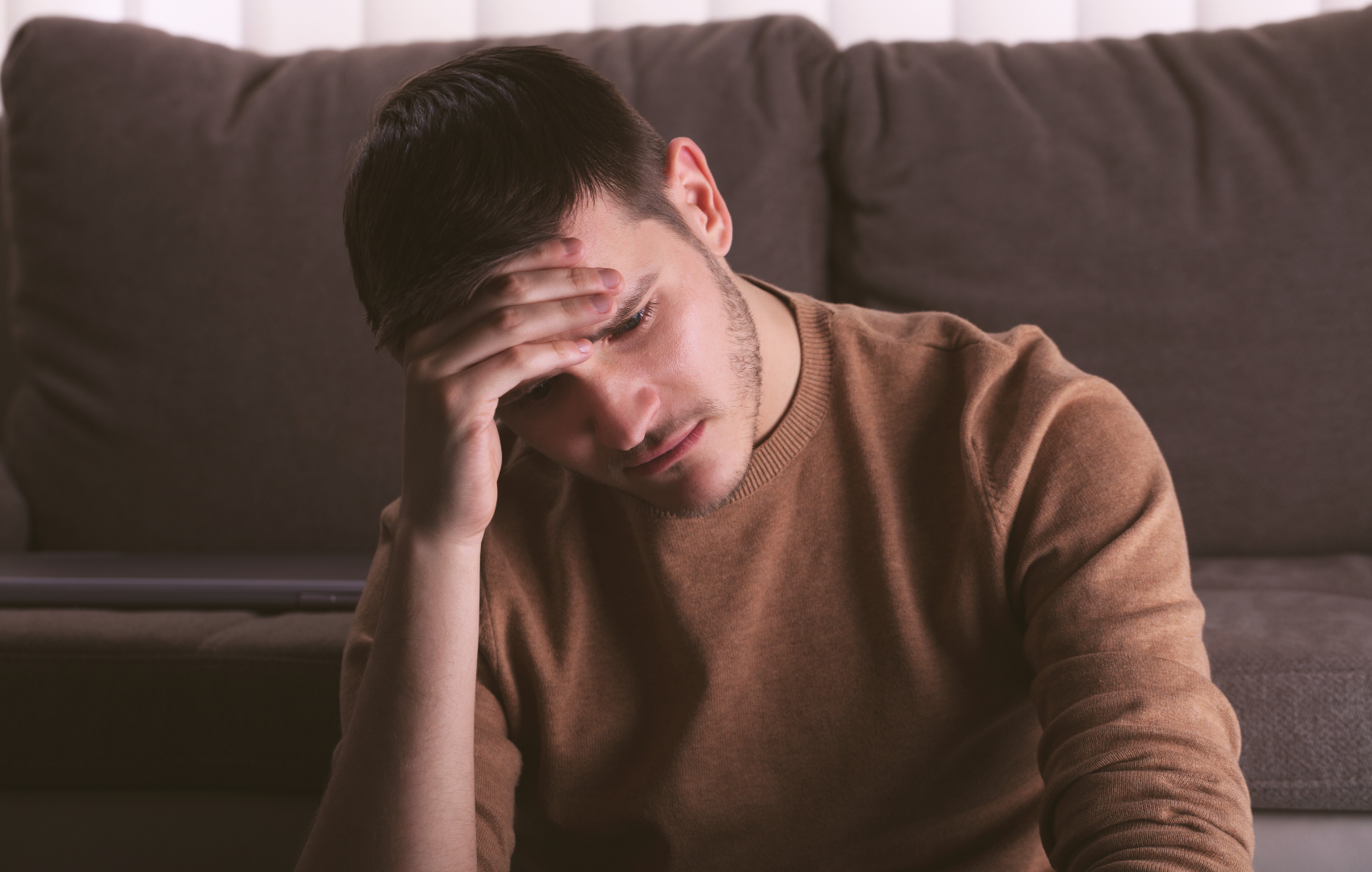
Stress and Sleep Loss: The Vicious Cycle and How to Break It

|
Written by Ruby Deevoy Ruby Deevoy is an award-nominated health, science and wellbeing journalist who contributes to publications such as New Scientist, The Telegraph, The Times, Stylist, Natural Health and many more. She is the UK's first and only ever mainstream CBD columnist (Top Sante magazine) and CBD consultant for international CBD and cannabis brands and clinics. |
According to the Sleep Foundation, 54% of adults say stress and anxiety are the top reasons they have trouble falling asleep. But what is it about stress that prevents you from falling asleep (or staying asleep)?
When we experience stress, what’s actually happening at a chemical level is the release of cortisol, which just so happens to be the hormone that also helps you get up and go! In a healthy mind and body, cortisol is produced appropriately by your hypothalamic-pituitary-adrenal axis (which also helps to coordinate your sleep cycles) following a regular circadian rhythm to help you stay alert when you’re supposed to. At night time, your hormonal balance is adjusted, cortisol is reduced and melatonin flows out to help you drift off - unless something has thrown your HPA axis off…
Unfortunately, the stress/sleep cycle is a vicious one. Once chronic stress has set in enough to disrupt your sleep, the lack of sleep then exacerbates your stress and on and on it goes.
So what can we do to help break the stress and sleep loss cycle?
Breaking the stress and sleep loss cycle
The first thing to realise is that not all stress is negative, so you don’t need to be aiming for net zero here! You just want to make sure that the stress you are experiencing is not leading you to an unhealthy or negative space.
While chronic stress (the kind that goes on for a long time) can be seriously detrimental, triggering premature ageing and illness, positive forms of stress, called Eustress, encourages the growth of new neurons and promotes higher levels of achievement and productivity.
This is useful to know, because striving to live a stress-free life is unrealistic. We all experience stress sometimes. We’re designed to and without it, we can end up feeling unmotivated and bored. And also, it’s valuable to know that it is possible to redirect some of that chronic stress (or Distress) into Eustress, through competitive sports, or adrenaline-boosting activities such as sky-diving, skateboarding, jumping into a cold shower or even watching a scary movie!
When the cascade of chronic stress is underway, however, it can be very challenging to grab hold of it and bring it back into normal function. There are many things at play when this happens, but one major part is the role of your endocannabinoid system (ECS).
Can CBD help reduce stress and improve sleep?
The ECS is, in a nutshell, your full body balancer. It produces endocannabinoids (a type of neurotransmitter) when balance needs to be restored. One endocannabinoid in particular is essential for controlling this type of runaway stress - Anandamide.
When there is enough Anandamide present in the brain, it acts like a sort of gatekeeper for stress, only letting the fight or flight response trigger when absolutely necessary. Unfortunately, many factors can contribute to an endocannabinoid deficiency, including lack of sleep, chronic stress (there’s that cycle again), poor diet and lack of exercise. When this deficiency occurs, we’re left with nothing to reign in that stress response, and we find ourselves freaking out every time our phone pings, or we’re faced with an unplanned task.
Good news though: supplements such as CBD and adaptogens like Ashwagandha, can be a great help in mediating this stress response.
How does CBD help reduce stress?
CBD, specifically, works by helping to promote the release and accumulation of endocannabinoids in the body by inhibiting the enzyme which ordinarily breaks them down. In doing this, higher levels of Anandamide build up in the body and brain, helping to regain control of the stress cascade. This, alongside a lift in serotonin which acts as a precursor to melatonin, also helps to promote better sleep.
Reduce stress and improve sleep: Expert tips
Of course, taking CBD isn’t the only thing you can do to break the stress and sleep loss cycle. Emma Last, founder of Progressive Minds Associates and the Human Reboot podcast shares her expert tips on other natural ways to reduce stress and promote a better night’s sleep:
- Try talking through feelings with a friend, family member or health professional or consider peer support, where people use their experiences to help each other. This can be amongst friends, peers or via online support resources.
- Listen to free mental well-being audio guides, they are easily accessible on the internet. This could be focussing on breathwork, time-management strategies, mindfulness or mental health apps suggested on the NHS website.
- Try to avoid alcohol, cigarettes, drugs or other behaviours such as gambling or self-harm to relieve stress – these can all make the situation worse in the longer term and can have a negative impact on mental health and wellbeing.
- Become more active or exercise - set aside time for it, even 5/10 minutes can help ease stress.
- Create a relaxing bedtime routine. Have a warm (not hot) bath, keep lights dim, read quietly or listen to some relaxing music and avoid the use of screens for at least 1 hour before bed. Try to go to bed and wake up around the same time each day, as late nights and long lie-ins can disrupt the body clock.








